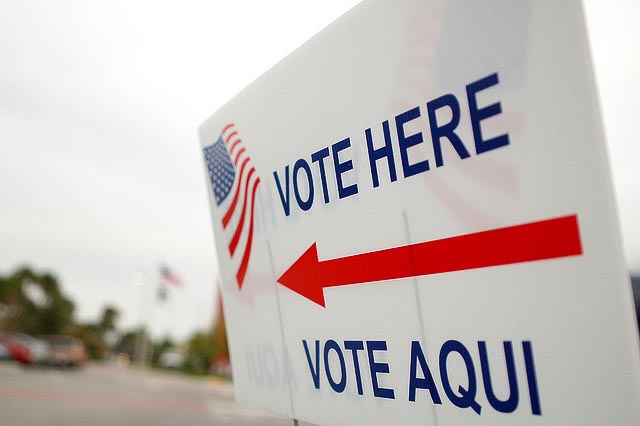The United States is viewed as an archetype of democracy, yet fundamental questions about the nature of our government and the way it’s elected are impossible for us to answer.
What type of people run for office?
Are our elections competitive?
Do our elections have strong turnout or weak turnout?
Simply put: We don’t know.
It may seem hard to imagine that we lack the answers to these startlingly simple questions. After all, countless professors, journalists and political operatives have made entire careers studying American government. And following politics is a pastime of millions of Americans.
But it’s true. More than 200 years after our Founding Fathers established this democracy, we still don’t know entirely how it works. Because of the way our government is structured, the biggest part of it – local government – is often shrouded in mystery.
Our 50 states were created to give citizens more direct input into how they are governed. Within them are even more jurisdictions that allow for local control. Today, the U.S. Census estimates there are more than 90,000 local governments within the country, and almost none of them are structured the same way.
This patchwork might be good for the American style of democracy. But it makes for lousy recordkeeping. Because elections are decentralized in the United States, basic information about their outcomes is startlingly difficult to access.
In some places, jurisdictions maintain and publish meticulous elections records. But in many, that’s not the case, and you’d be lucky to obtain even the most recent election results online. Some local governments in this country don’t even have functional websites.
Local governments generally lack the resources to publish, update, and maintain records of their elections online. And because there are just so many jurisdictions in this country, requesting those records one by one would be a prohibitively time-consuming task.
There is no comprehensive source of information on local elections outcomes in this country. As a result, it’s largely impossible to make generalizations about the largest piece of American government. The situation has vexed political scientists, journalists and other researchers for years.
We plan on changing that.
Thanks to a grant from the National Science Foundation, the Local Elections in America Project (LEAP), has completed development of a software application that can automate data collection, and digitize and normalize records on local elections across the complex patchwork of local governments. The project has compiled results from 22 states. In some cases, those records date as far back as the early 1980s.
With funding from Knight Foundation, we’ll be able to expand the size of that database and our ability to disseminate it. As part of that effort, LEAP will be housed within the Kinder Institute for Urban Research at Rice University, which is tasked with understanding the critical issues facing urban centers across the country.
Unlike presidential elections, which only occur every four years, local elections can occur at almost any time. Given the number of jurisdictions, the existence of party primaries, and the occasional need for runoffs or special elections, at any given time there’s likely a local election on the horizon somewhere.
Within our database are the names of local candidates, their party affiliations (if elections are partisan), the number of votes they received and the district in which they ran. In addition, each candidate record is geocoded, making connectivity to other data seamless. Other states, such as Louisiana, offer even more detailed information, such as the race and gender of each candidate. We have records of hundreds of thousands of people who’ve run for office in this country.
We’re also developing a user guide for the database that could also function as a handbook for local government and explain how different types of jurisdictions are organized and operated.
By creating a database that updates automatically—and constantly—and we are able to ensure we have the most current information available to help researchers and journalists study government effectively.
While the presidential campaign continues to generate headlines, the heart of democracy is at the local level. With the support to expand LEAP, now we’ll be able to understand it.
Melissa Marschall is a professor of political science at Rice University and the principal investigator of the Local Elections in America (LEAP) Project, which Knight Foundation supports. Ryan Holeywell is the senior editor of the Kinder Institute for Urban Research.

